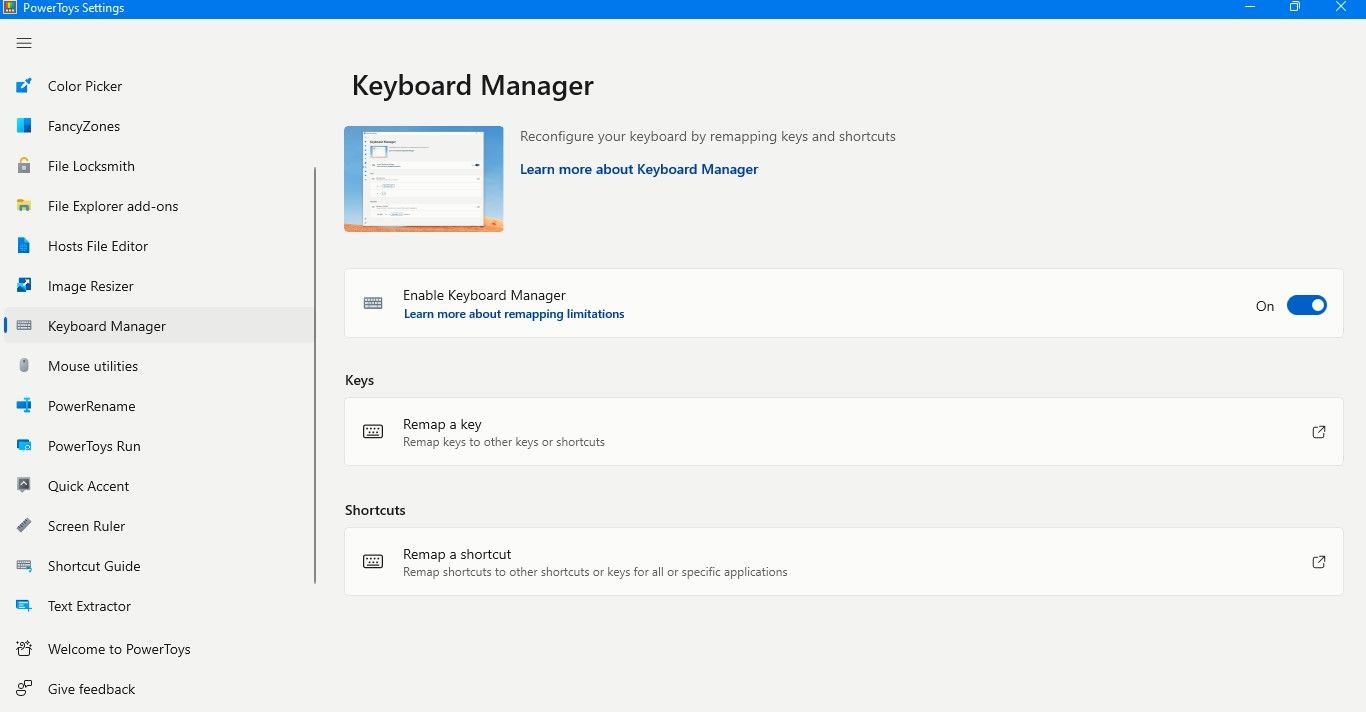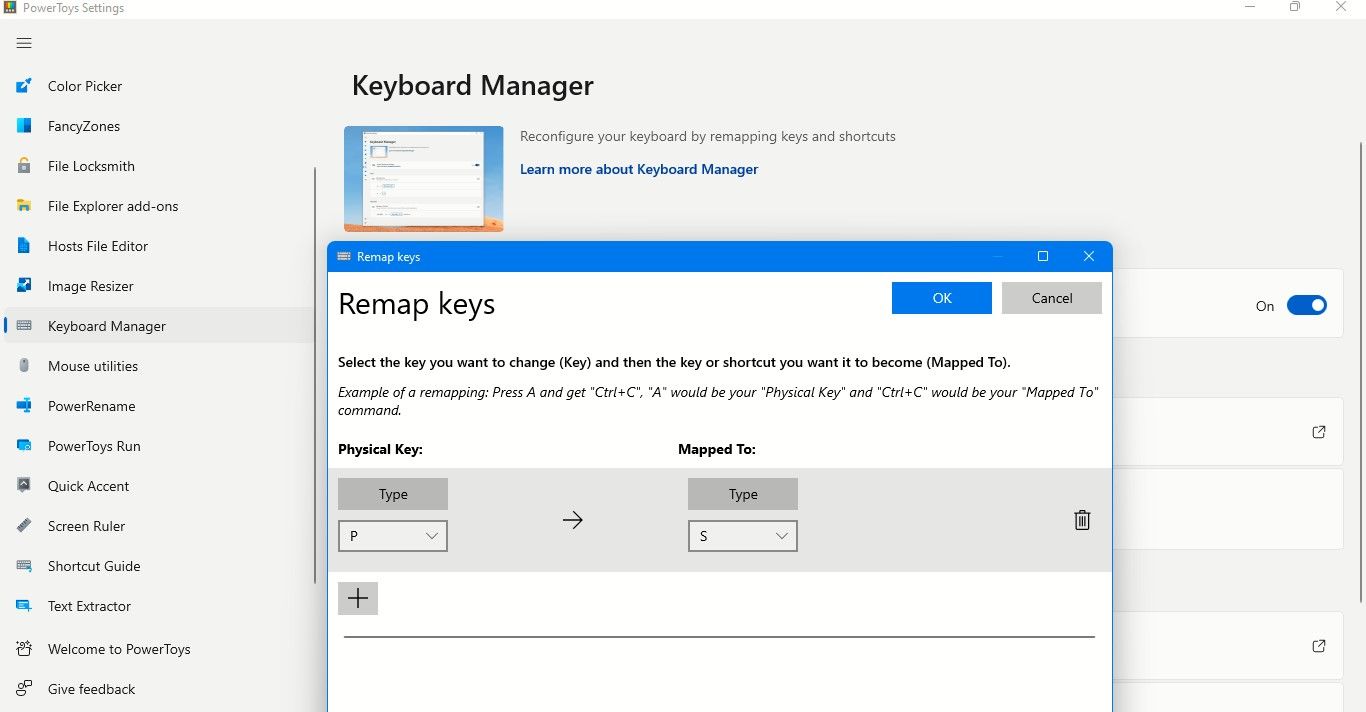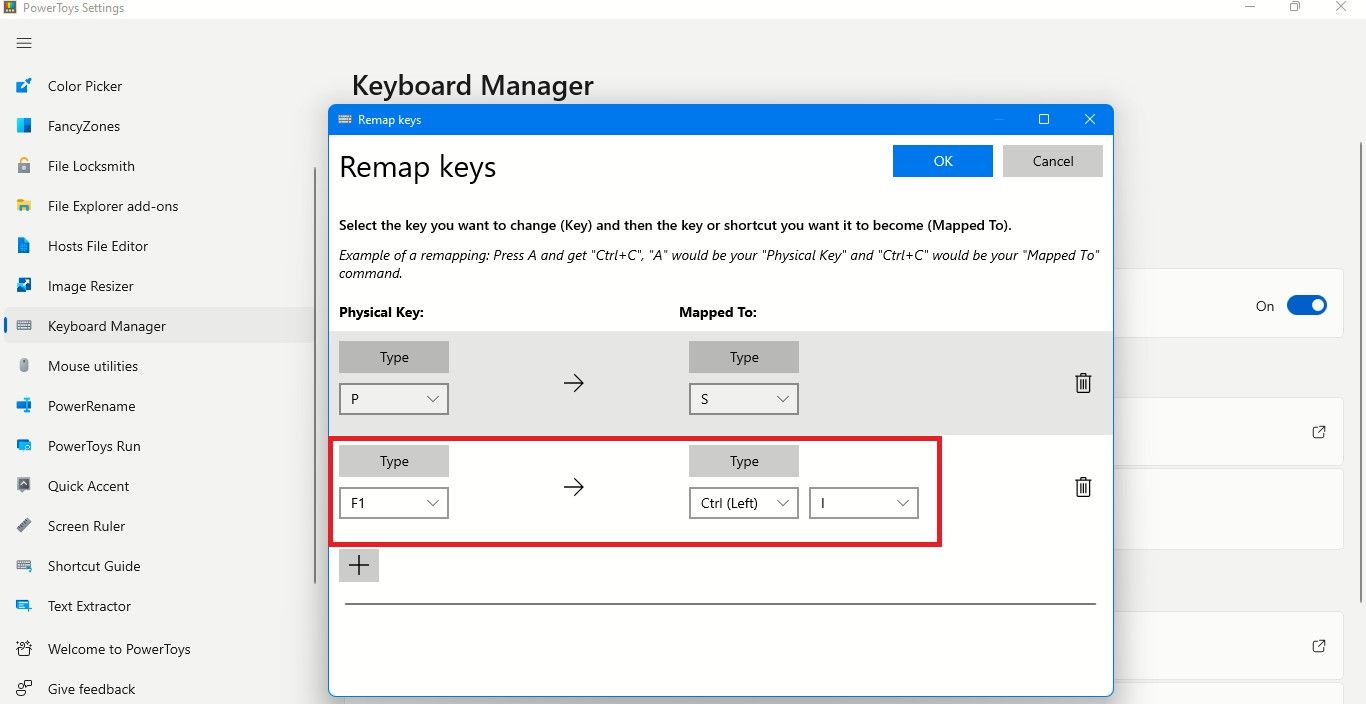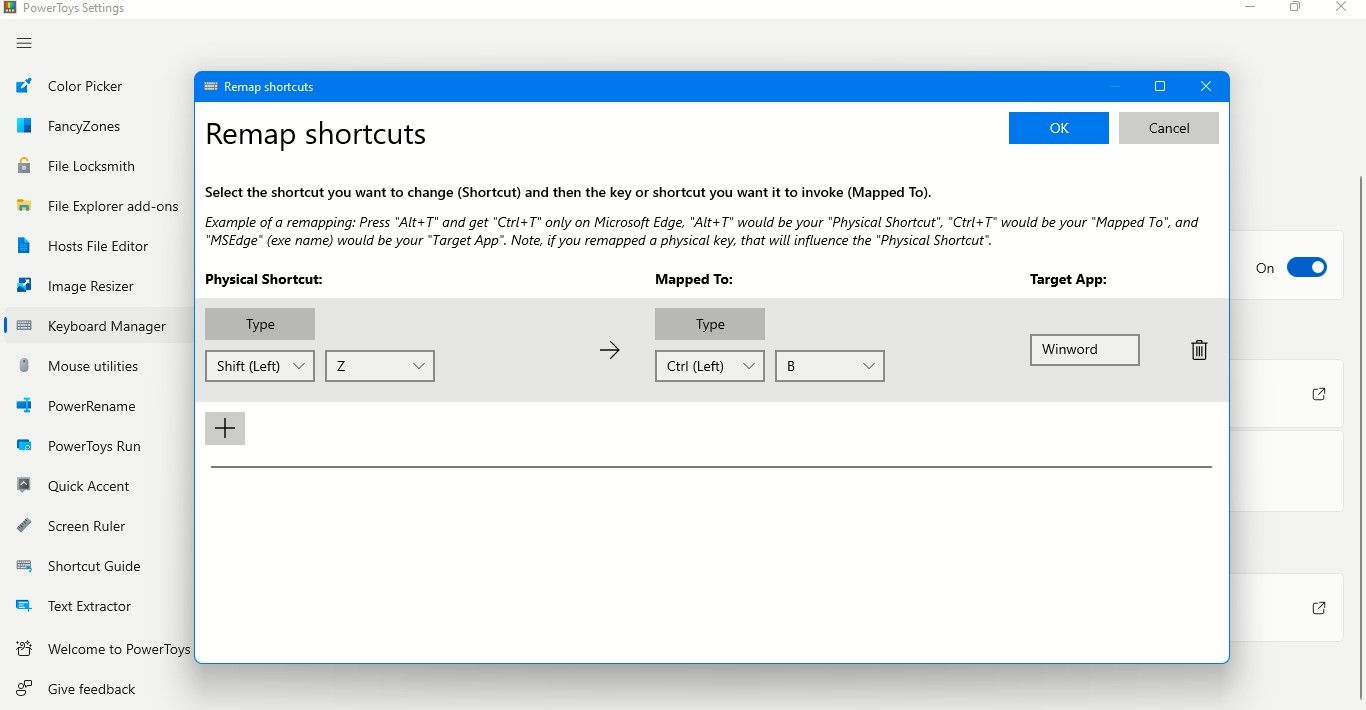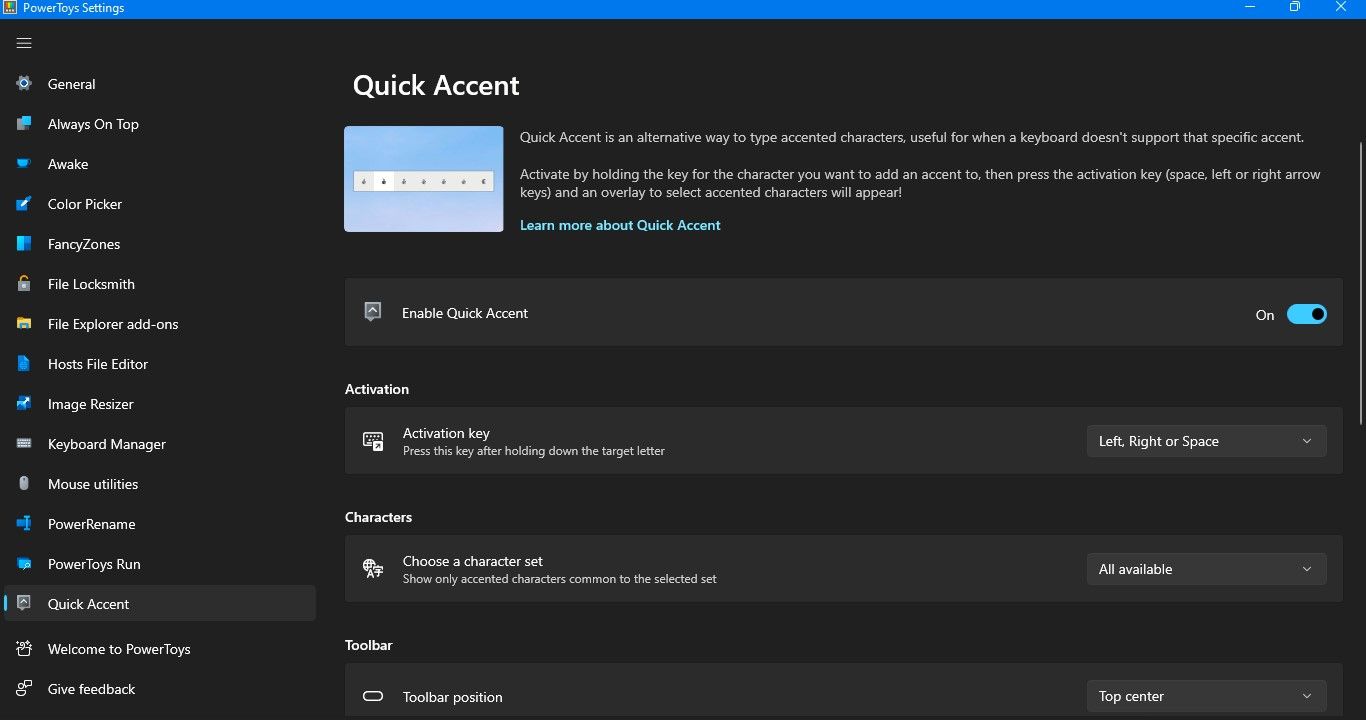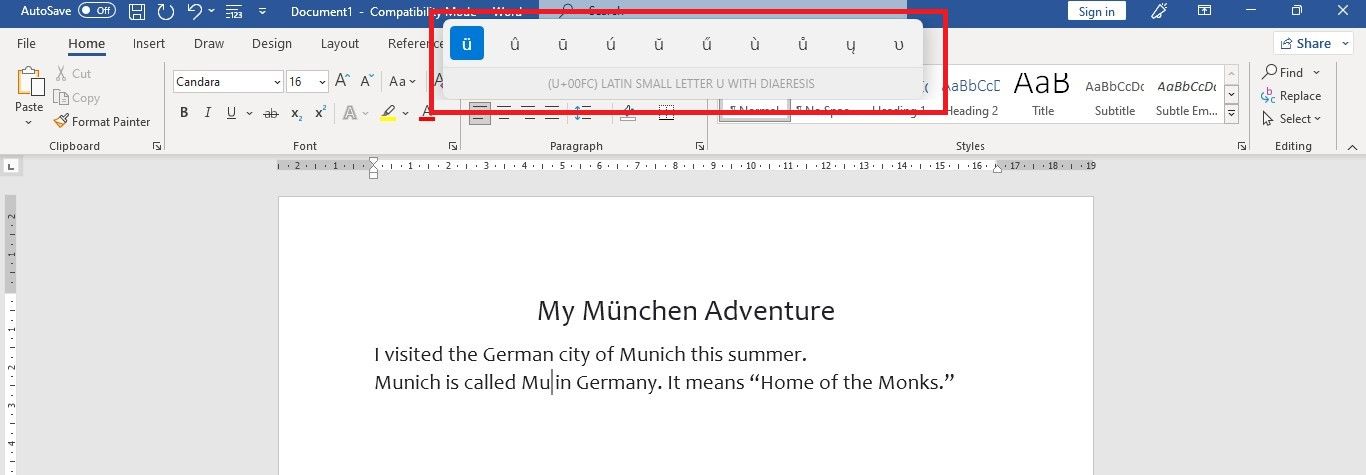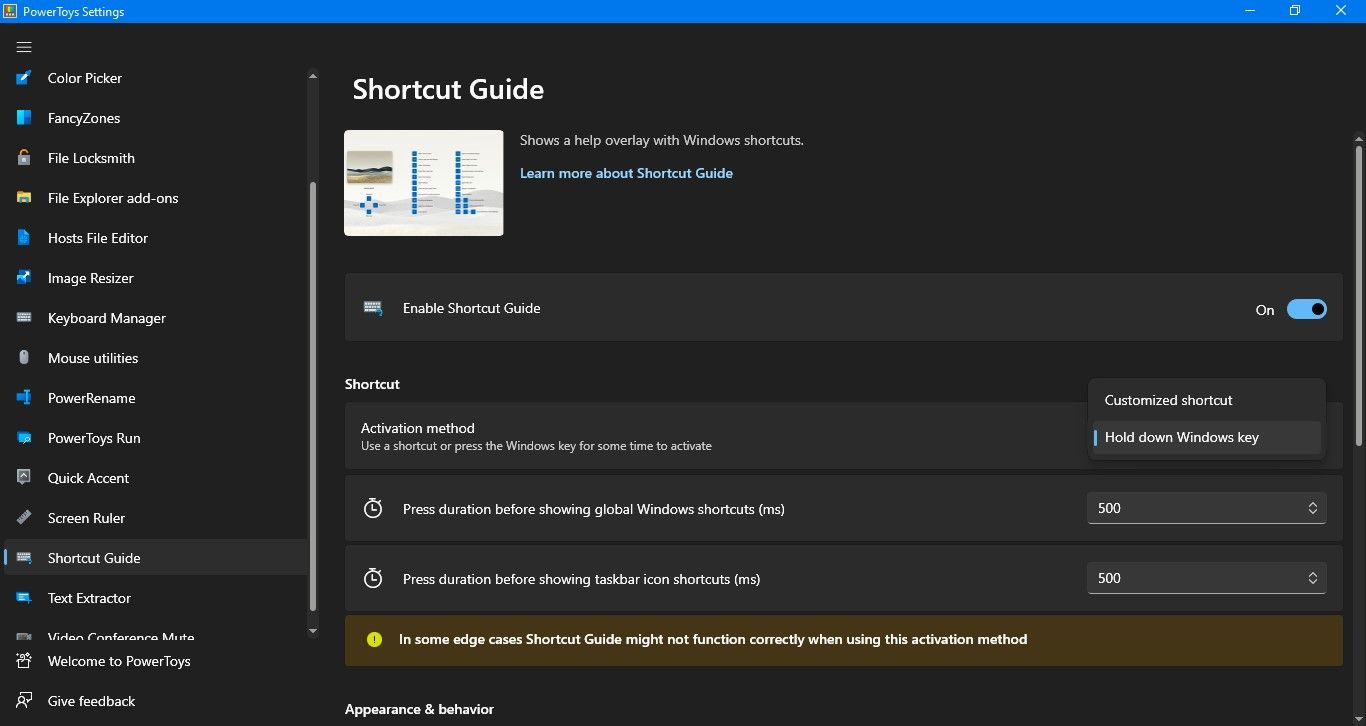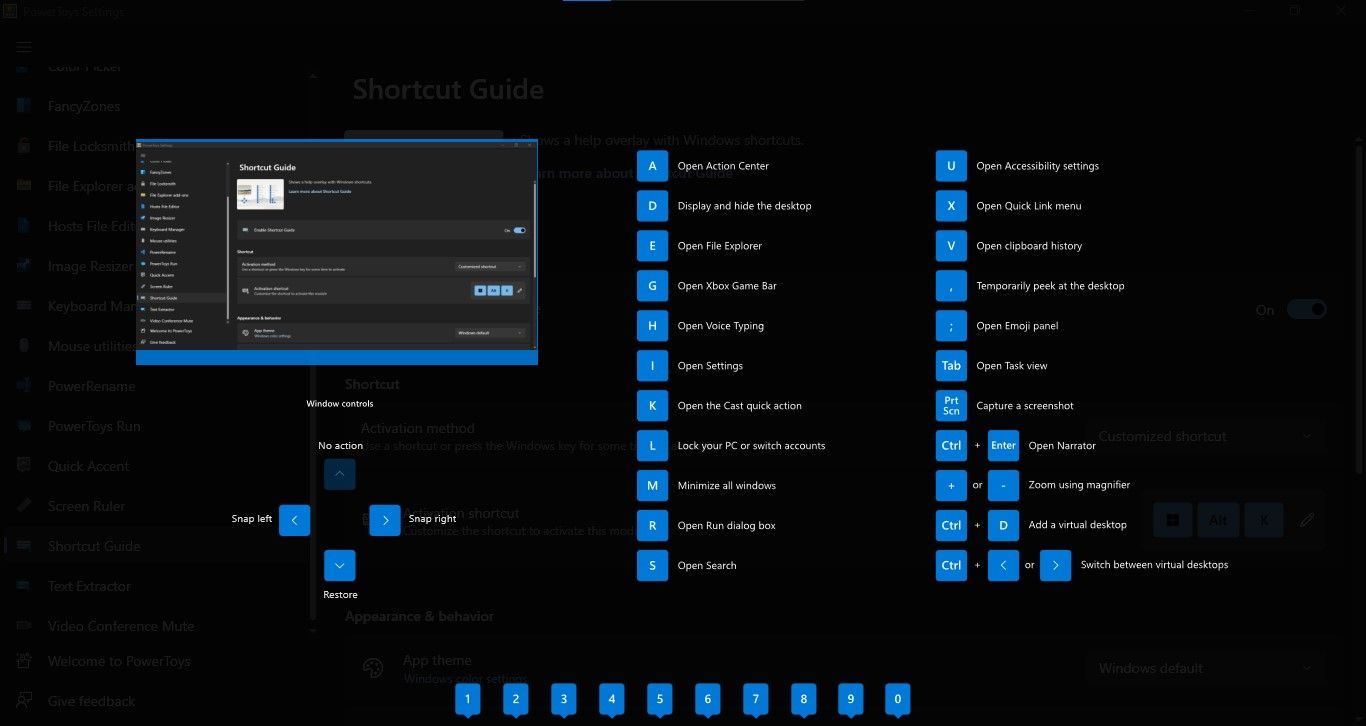With lots to pack into a day, it's always good to find shortcuts or solutions that could speed up your work. One way to get things done faster on Windows is by reducing your typing time with Microsoft PowerToys.
PowerToys has a few utilities like the Keyboard Manager, Quick Accent, and Shortcut Guide to help you speed up your typing.
What Is PowerToys? How Can You Get It?
Developed by Microsoft in collaboration with its community, PowerToys is a suite of open-source utilities you can install on your Windows 10 or 11 PC. With PowerToys, you can customize your Windows experience and enhance your productivity and efficiency.
PowerToys was launched with Windows 95 and included a utility that enabled users to auto-play CDs. Today, PowerToys comprises many innovative tools, including one that lets you extract text from images and another that converts your cursor into a handy color picker.
It's easy to get PowerToys on your PC—look it up in the Microsoft Store and install it or download it from its PowerToys Microsoft Store page.
Once you have PowerToys, you can use the Keyboard Manager, Quick Accent, and Shortcut Guide to type faster. Remember that PowerToys must be activated and running in the background for these utilities to work.
How to Remap Keys and Shortcuts With the Keyboard Manager
The Keyboard Manager lets you remap keys and shortcuts on your keyboard with the keys you are most comfortable typing with.
How to Remap Keys to Type Faster
To remap your keys with Keyboard Manager:
- Open PowerToys on your PC by searching for it on Windows Search and clicking PowerToys under Best match. Or double-click the PowerToys icon in the system tray. The PowerToys Settings screen will open up.
- Click on Keyboard Manager on the left pane. Then Enable Keyboard Manager by turning its toggle on in the right pane.
-
Click on Remap a key to open the Remap keys window.
-
Press the down arrow under the Type button in the Physical Key section, and select a key like P. Then under the Mapped to section, click on the down arrow under Type and select a key like S to map the physical key.
- Finally, click on the blue OK button on top and click on Continue Anyway on the warning prompt. Now when you type P on your keyboard, the letter S will get typed.
Remapping a key is also handy if a key stops functioning. You can map it to another key till you get the faulty key fixed or buy a new keyboard.
You can also map shortcuts like Ctrl + I to a key. Click on the plus sign under Physical Key. Then click on the Type button. Next, select a key like F1 by pressing it on the keyboard. Then click OK.
Now under the Mapped to section, click on the Type button. Now press Ctrl + I or the Italicize shortcut on the keyboard to map the F1 key to it.
Now, when you need to italicize a text, instead of Ctrl + I, just press a single key, F1. So you'll automatically be typing faster.
This way, you could remap many alphabet and number keys, and even function keys to speed up your work. Think of all the milliseconds and seconds you will save whenever you type.
How to Remap Shortcuts to Type Faster
Below the Remap a key option you'll find the Remap a shortcut option. Click on it to open Remap shortcuts window. You can remap common shortcuts to other shortcuts you prefer to use.
For example, instead of pressing Ctrl + B keys to make a text bold, you'd rather use Shift (left) + Z—Shift (left) + Z keys are next to each other and easier and faster to press together. So in the Remap Shortcuts window, type Shift (left) + Z under Physical Shortcut and Ctrl + B under the Mapped to section.
You can choose All Apps as the Target App or an app such as Word, where you want this remapped shortcut to work. But remember to put the executable name or EXE name of the Word app, which is Winword. You can easily find the EXE names of apps via a Google search.
Finally, click on the blue OK button and click Continue Anyway on the prompt.
Now you can bold text with your preferred shortcut and type faster on your favorite app.
How to Type Accents in a Snap With Quick Accent
There could be times when you need to add an accented character while typing. Maybe while sharing the name of your exotic holiday destination or ensuring the surname of a guest is spelled right.
With Quick Accents, you could do that in a snap while typing with your English keyboard. Yes, it's easy to use this fast way to type accented characters.
In PowerToys Settings, click on Quick Accent in the left pane and toggle on Enable Quick Accent. You can use the Left, Right Arrows, or Space as the Activation key.
Under Characters, Choose a character set you want to use, like Catalan, Dutch, French, German, Spanish, and more. Or choose All available to get all the options.
To use Quick Accent, first press and hold the key of the character on which you want to add an accent. Then press the Activation Key.
For example, if you want to use the accented character ü to type München, the German name of Munich—press and hold the u key and then press the spacebar, or the left or right arrow keys. A toolbar of accented characters for the letter u will appear on your PC screen.
Move across the toolbar with the spacebar or the left or right arrow keys to highlight the ü accented character. Then release the u key on your keyboard—and ü will get typed.
How to Keep Shortcuts Handy With the Shortcut Guide
You might not be able to always recall the various Windows keyboard shortcuts, even if you are a Windows Power User. But the PowerToys Shortcut Guide has you covered.
First, Enable Shortcut Guide in PowerToys Settings. Then choose to activate Shortcut Guide by holding the Win key down for a set time or use a customized shortcut.
While typing, activate the Shortcut Guide. An overlay will appear on your screen displaying keyboard shortcuts that use the Win key. You'll also see the result of each shortcut written in the guide.
You can use the shortcuts while the guide is displayed. So if you're holding the Win key, just press a letter like E—that would become Win + E and open up File Explorer. Release the Win key to close the overlay.
If you've used a shortcut key combination for activation, the guide will stay displayed on the screen. So first enter the Win key, then another key to apply a shortcut.
Once done, press the shortcut key combination again to close the guide overlay.
Type Faster and Enjoy a Speedier Windows Experience With PowerToys
There's always a lot to do and time seems to fly, especially when you're chasing deadlines. So save time by using the PowerToys utilities discussed above to type faster and smarter.
And now that you have PowerToys, you can explore the best things to do with these handy tools.


